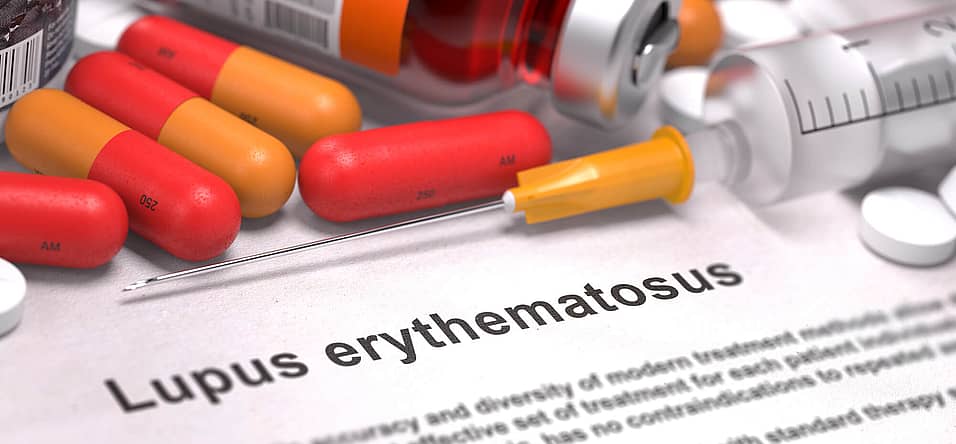
World Lupus Day
Learn the symptoms so you can act fast against the life-threatening autoimmune disease known as Lupus, which effects at least five million people globally.
Imagine being bothered by sunlight, being covered in a rash, suffering from fatigue, having mouth sores, and dealing with kidney and joint problems, as well as experiencing substantial hair loss and swelling of the lymph nodes. Sounds awful, doesn’t it? Well, it is kind of awful, actually, for the many people who deal with symptoms of lupus each and every day.
World Lupus Day was created to help the world understand that this seemingly random grab bag of symptoms is actually a debilitating, chronic autoimmune disease that is suffered by approximately 5 million people worldwide, with 1.5 million of them living in the United States alone.
In short, lupus causes the immune system to become overactive, creating antibodies that attack healthy tissue causing pain, inflammation and damage in a given part of the body. Although lupus can be fatal, there is currently no known cure. Sadly, a large majority of people have little to no idea about lupus, often confusing it with arthritis, a much less serious disease. Many people have no idea lupus even exists until they themselves or somebody they know is diagnosed with it.
This is the problem World Lupus Day was created to combat, and now it’s time to learn more about this difficult disease and then share it with others in honor of the day!
History of World Lupus Day
World Lupus Day was created by Lupus Canada in 2004 to raise awareness of this little-known disease that can have devastating effects on sufferers and their families. Ultimately, it was organized by lupus organizations from thirteen different countries, who called for their governments to increase funding for research, provide better patient services, increase epidemiological data and raise awareness.
In the years since then, the day has been observed in an increasing number of countries in most of the continents all over the world, in Africa, Asia, Australia, North & South Americas, and Europe.
One high profile supporter of World Lupus Day is musician and philanthropist Julian Lennon who is a Global Ambassador (and also the son of John Lennon, of Beatles fame). Other celebrities who have made sizable contributions to the Lupus Association of America are Daniel Radcliffe, Lady Gaga and Ian Harding.
World Lupus Day Timeline
13th Century
Lupus is named
Rogerius, a physician, names this disease the Latin name for “wolf”, related to the face lesions that often occur, resembling wolf bites.[1]
1872
Systemic nature of Lupus is first described
Moriz Kaposi, son-in-law of Austrian dermatologist Ferdinand von Hebra, gives a description of the fact that the illness can have severe pathological changes and may be associated with deadly conditions.[2]
1948
LE cells are discovered
American Malcolm Hargraves describes the Lupus cell (LE cell or “tart cell”) in bone marrow, which will become monumental in the diagnosis and treatment of the disease.[3]
1954
Familial occurrence of Lupus recognized
The association of genetic markers with Lupus helps shed light on the occurrence of systemic Lupus in families.[4]
1991
A study reveals hydroxychloroquine as beneficial
Lupus patients had been administered this drug since the 1950s, but this is the first study that shows its ability to prevent disease flare ups.[5]
How to Celebrate World Lupus Day
Observing World Lupus Day is an important day that is related to a serious cause, but it can also be enjoyable and a lot of fun! Try out some of these ideas for celebrating the day:
Wear the Color Purple
Lupus Day is associated with the color purple, and people can show support by wearing purple clothing or buying special wristbands with the phrase ‘Help Us Solve the Cruel Mystery’. Let everyone in the family or at the office know to wear purple on World Lupus Day to show support.
Because the month of May is also Lupus Awareness Month, it’s appropriate to wear purple not just on World Lupus Day, but all month long in observance of the fight against lupus!
Join a World Lupus Day Activity
Many communities have groups that support Lupus Awareness and that will host certain events such as fun-raisers, walk-a-thons, Lupus Bingo and many other activities. For those who can’t find events happening in their community, head over to the Lupus Foundation of America (LFA) and get a toolkit to help with hosting a supporting event for World Lupus Day.
Learn More About Lupus
Lupus is a fairly common disease that comes with a lot of confusing symptoms, so it can look very different from one person to the next. That’s why it is important to understand and learn a bit more about what lupus is–and what it isn’t.
For starters, here are some interesting facts about lupus that could be shared in conversation with others to raise awareness on World Lupus Day:
- Lupus is typically a “young person’s” disease. Symptoms of the disease tend to develop between the ages of 15 and 44 (though diagnosis can take some time) and it lasts for the rest of the person’s life.
- Lupus is a chronic, autoimmune disease that can can affect any tissue or organ in the person’s body, including the skin and joints. Some of the most serious ways that lupus impacts the organs is through kidney disease and heart disease, which can lead to critical illness and even death.
- Although men can get lupus, it is less common. 90% of people living with lupus are women.
- African Americans, Asians, Hispanics/Latinos, Pacific Islanders and Native Americans are two to three times more likely to have lupus than are Caucasians.
Sign a Lupus Awareness Pledge
Of course, it is also a good idea to go to World Lupus Day’s official website and sign an awareness pledge, meaning that a person pledges to help the plight of those affected by lupus get more attention from the medical community and politicians.
There are very simple ways to do this, such as, for example, changing your Facebook profile picture to the World Lupus Day logo. This may not seem like much, but social media has proven time and time again just how much it can do to help the sick. Just take a look at how much money has been raised for ALS in the past by people the world over dumping buckets of icy water of their heads.
Make a Donation to a Lupus Charity
And, of course, there is always the possibility to make a donation to the Alliance for Lupus Research or another charitable organization that works to raise awareness and find a cure for lupus.
Even for those who can’t afford to donate too much, it’s no problem! In situations as serious as the situations of those afflicted with lupus, every dollar counts.
Help Someone Who Has Lupus
For those who tend to have a bit more spare time and happen to know of someone in the neighborhood the local community who has lupus, this might be a good time to make a commitment to helping this person every now. Perhaps it offer to help with some of the little chores that are perfectly easy for a healthy person to do, but can be extremely tiring and painful for a person suffering from lupus—even helping this person take out their trash of carry their groceries home. Whatever you decide to do on this day, make sure it is an effort to help make the lives of those with lupus a little bit better.
World Lupus Day FAQs
Is Lupus a disease?
Yes. Lupus is a health condition that occurs when the body’s own immune system attacks its own tissue and organs.[1]
How does Lupus affect the body?
Lupus can affect the body in a variety of ways, particularly with inflammation, joint pain, fever, stiffness, rashes, headache, fatigue, dry eyes, chest pain, shortness of breath and more.[2]
Where did Lupus get its name?
Lupus was named after the Latin word for “wolf” when it was used in the 13th century to describe facial lesions that looked like a wolf’s bite.[3]
Can Lupus be cured?
Although Lupus is a chronic disease with no cure, many advances in treatments to prevent flare ups have been made in recent decades.[4]
How is Lupus diagnosed?
Lupus produces a variety of symptoms that mean it can take some time to get a diagnosis. A person must have four or more classification criteria to be diagnosed.[5]





